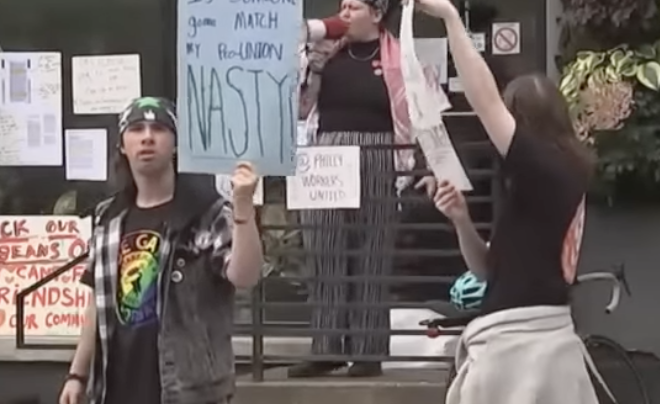More than 30 Philadelphia coffeehouse workers are out of work after a successful attempt to unionize resulted in an unexpected cost: their own jobs.
“It is with a heavy heart that we must announce the closure of all three OCF Coffee House locations,” OCF Realty posted on Instagram recently. “After 13 wonderful years of serving our beloved community, the time has come to say goodbye.”
Local news reporters noted that the closures came just a week after employees at the cafes unionized.
“I am pretty crushed,” former OCF employee Alex Simpson told CBS News Philadelphia, “especially because it’s such a blatant response to our union process. This comes a week after we publicly announced our union.”
Losing a job is crushing, so Simpson’s loss is nothing to celebrate. Nevertheless, it’s important to understand why dozens of erstwhile gainfully employed workers are now out of work.
Like many workers who support union initiatives, those who joined the Workers United, Local 80 union were mostly interested in one thing: their own compensation.
According to news reports, workers said they were making anywhere between $9 per hour and $13 per hour, in addition to tips and benefits (health, life, vision, dental, and matching 401(k), according to OCF Coffee House). The workers believed they deserved more.
There’s nothing wrong with wanting more money, and it’s perfectly natural to consider one’s own situation in any employee-employer arrangement.
That said, OCF Coffee House employees made what economist Ludwig von Mises considered a perennial error of union workers, who he noted often possess an excessive preoccupation “with wage rates and pensions” and overlook an important economic reality.
“The union members are not conscious of the fact that their fate is tied up with the flowering of their employers’ enterprises,” Mises explained in Planning for Freedom.
For many people who’ve only signed the back of checks, it’s easy to forget that to employ workers for any length of time, a business enterprise must be successful, something OCF Coffee House was not. President and CEO Ori Feibush told local news outlets that the coffee enterprise was already operating at a loss prior to the union vote.
“You had an organization that was already at its limit,” Feibush told reporters. “It was at its limit, and it did not have the capacity to continue to burn an additional cost.”
Profits are often demonized in America today, but it’s important to understand that profits are the lifeblood of an economic enterprise. Profits don’t just drive innovation; they also drive capital expansion and increase employment.
Because it wasn’t a profitable enterprise, OCF was in no position to continue operations following unionization, which would have imposed new legal costs on the business (as well as other potentialheadaches).
Feibush said he attempted to organize a meeting with workers to explain that the business couldn’t operate under the costs that would accompany unionization.
“No one showed,” Feibush said.
Whether the meeting would have prevented unionization and the closure of the three coffeehouses is something we’ll never know. But the failure of employees even to attend the meeting speaks to Mises’s point about the tendency of unions to be preoccupied with their own demands while failing to realize their own fates are tied to the successes of the businesses that employ them.
As a result of workers failing to take into consideration the health of the enterprise, everyone lost: the entrepreneur who poured his capital into a business venture, the workers who will no longer receive a paycheck and benefits, and the consumers who frequented the establishments.
This is not to say that workers do not have a right to unionize and bargain collectively; they do. But unions are not divorced from basic economic realities, though their demands often are.
Nor is this to say that it’s wise to form a union just because one can. As Henry Hazlitt pointed outmany years ago, unions come with steep trade-offs. While membership might benefit some workers with low productivity, others receive lower compensation than they otherwise would, and union hostility to innovation and investment tends to reduce real wages in the long term.
Sadly, 34 workers are now out of work because they failed to realize their own success depended on the success of the establishment at which they worked. Instead of listening to the Workers United, Local 80 union, workers would have been better off reading what Thomas Sowell had to say about unions.
“The biggest myth about labor unions is that unions are for the workers,” Sowell wrote. “Unions are for unions, just as corporations are for corporations and politicians are for politicians.”
Jonathan Miltimore is the Senior Creative Strategist of FEE.org at the Foundation for Economic Education. Original here. Reproduced with permission.
